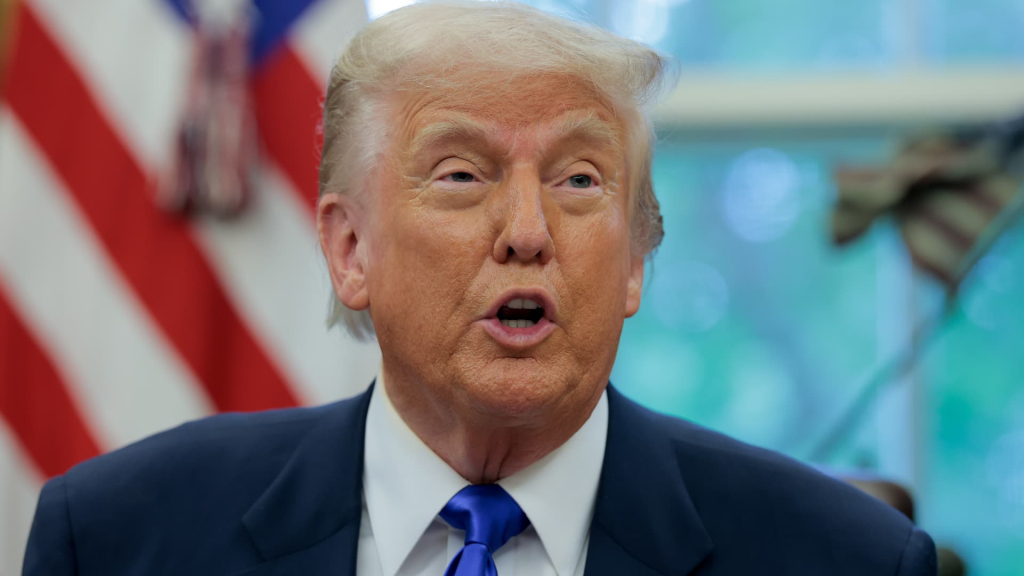On Tuesday, President Donald Trump raised significant concerns regarding the trade dynamics between the United States and Canada just moments before his scheduled meeting with Canadian Prime Minister Mark Carney at the White House.
In a post on Truth Social, Trump expressed eagerness to engage with Carney but voiced confusion over why the U.S. appears to be subsidizing Canada to the tune of “200 Billion Dollars a year,” while also providing “FREE Military Protection” among other benefits.
Trump has consistently criticized trade deficits with various partners, and this sentiment extends to Canada. A Trump administration official stated earlier this year that the $200 billion figure was largely tied to U.S. defense expenditures that Canada benefits from, alongside the trade deficit itself.
Last year, the U.S. recorded a trade deficit of $63.3 billion with Canada, importing over $400 billion worth of Canadian goods, as reported by the U.S. Trade Representative.
“We don’t need their Cars, we don’t need their Energy, we don’t need their Lumber, we don’t need ANYTHING they have, other than their friendship, which hopefully we will always maintain,” Trump remarked, emphasizing his position.
He further added that Canada is more reliant on the U.S.: “They, on the other hand, need EVERYTHING from us! The Prime Minister will be arriving shortly and that will be, most likely, my only question of consequence,” he wrote.
This critical stance towards Carney came a day after Trump had downplayed the meeting’s importance.
U.S. Commerce Secretary Howard Lutnick portrayed Canada as overly dependent on American resources, stating in an interview that the nation has been “feeding off of us for decades upon decades.”
Last year, Canada ranked as the second-largest trading partner for the United States after Mexico, with total goods trade of approximately $762 billion, according to the U.S. Trade Representative.
However, the trade relationship has been strained due to Trump’s imposition of significant tariffs on Canadian products.
In March, Canadian exports to the United States fell by 6.6%, while exports to other nations surged nearly 25%, according to a report from Statistics Canada.
Trump’s tariffs, along with his proposals for incorporating Canada as a U.S. state and his frequent derogatory remarks, have altered the dynamics of Canadian politics.
The Liberal Party, led by Carney, recently regained a majority in Parliament after previously trailing in the polls, a result seen as a backlash against Trump and a resurgence of Canadian nationalism.
Bruce Heyman, the former U.S. ambassador to Canada, noted on Finance Newso’s “Squawk Box” that the meeting carries significant implications for both Carney and Trump, who has long claimed the ability to negotiate beneficial trade agreements with individual nations.
This is developing news. Please check back for updates.


























